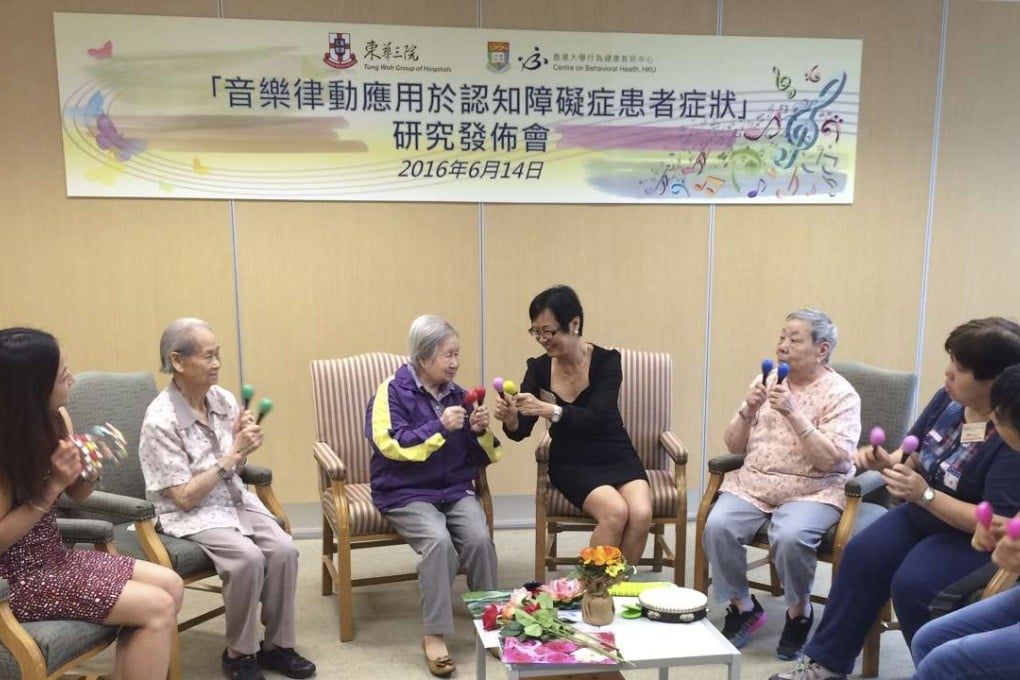Hong Kong-designed music and dance classes boost dementia sufferers’ mood
Study found marked improvements in behaviour and psychological symptoms after eight-week music and movement programme for elderly sufferers of the debilitating brain condition

Ms A was irritable and refused assistance for daily activities, Ms B had a poor memory and her mind often wandered, while Mr C was often agitated. After joining 37 other compatriots with dementia in specially designed music and movement classes, Madam A became more positive and willing to interact with others, Madam B was able to follow instructions, and Mr C’s moods became more stable.
These elderly subjects were part of a study conducted by the University of Hong Kong’s Centre for Behavioural Health and the Tung Wah Group of Hospitals’ residential old people’s homes. The findings revealed on June 14 show the effectiveness of the music and movement programme – twice-weekly classes for eight weeks – in improving behaviour and lessening the psychological symptoms of old people with dementia.

Each class, consisting of eight subjects, began with a breathing exercise with soft background music. Then, four Cantonese pop songs from the 1950s, ’60s or ’70s, and an extract of Chinese opera were played. While listening to the music, participants were encouraged to respond, sing and move freely to the words and rhythm. Objects such as small shakers and an artificial flower were used to enhance active engagement.